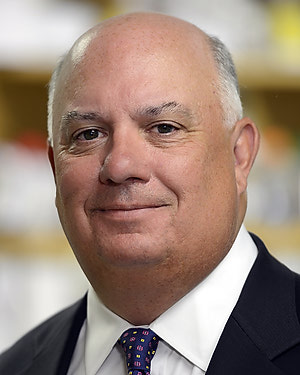Research Lab Results
-
Edward Kraus Lab
Dr. Kraus’ team investigates the factors that impact the long-term success or failure of kidney transplants as well as barriers to nephrology care and transplants in minority populations. We research many topics dealing with kidney transplant rejection, including diagnostic criteria, infection risk and incompatibility factors. Our lab also has a longstanding interest in pancreas transplants and has conducted research to establish guidelines for diagnosing antibody-mediated rejection of pancreas allografts-updated Banff grading schema.
-
Duvuru Geetha Lab
Dr. Geetha’s team focuses on renal diseases in patients with systemic vasculitis as well as BK virus nephropathy in patients who have undergone renal transplant. Our studies include clinical trials on the effectiveness of rituximab versus cyclosporine in treating idiopathic membranous nephropathy and a multinational study of belimumab with azathioprine for maintaining remission of granulomatosis with polyangiitis and microscopic polyangiitis. We also have conducted research on the treatment of ANCA vasculitis, particularly in kidney transplant patients.
-
Hamid Rabb Lab
Dr. Rabb’s lab is involved in translational research aimed at understanding the molecular pathogenesis of kidney ischemia/reperfusion injury. The lab is interested in the development of novel treatments for kidney IRI.
-
Chirag Parikh Lab
Dr. Parikh's research focuses on the translation and validation of novel biomarkers for the diagnosis and prognosis of acute kidney injury. Progress in kidney diseases has been hamstrung by significant heterogeneity within the current disease definitions, which are largely based on serum creatinine. Dr. Parikh's research has addressed this critical challenge by developing biomarkers of renal tubular injury, repair, and inflammation to dissect this heterogeneity. He has assembled multicenter longitudinal prospective cohorts for translational research studies across several clinical settings of acute kidney injury and chronic kidney disease for the efficient translation of novel biomarkers.
His research is dedicated to the process of applying discoveries generated in the laboratory and in preclinical experiments, the development of clinical studies, and the design of clinical trials. Dr. Parikh's studies have refined the clinical definition in perioperative acute kidney injury and hepatorenal syndrome, developed strategies to reduce kidney discard in deceased donor transplantation, and advanced regulatory approvals of kidney injury biomarkers. He has also developed biomarkers to identify rapid progressors of early diabetic kidney disease before derangements in serum creatinine. Dr. Parikh's research goal is to translate our understanding of pathophysiological mechanisms into clinical practice and improve the outcomes in patients with kidney disease.
Dr. Parikh has also been the recipient of numerous honors, including the 2017 Young Investigator Award from the American Society of Nephrology. -
Welling Laboratory
Dr. Paul A. Welling and his research team explore the genetic and molecular underpinnings of electrolyte physiology, potassium balance disorders, hypertension and kidney disease. A major thrust of current research activity is devoted to understanding how faulty genes and environmental stresses drive hypertension. The research is providing new insights into how the Western diet triggers deleterious responses of salt-sensitivity genes. The Welling laboratory employs a multidisciplinary approach, spanning from gene discovery, molecular biology, genetically engineered mouse models to translational studies in humans. By illuminating pathophysiological mechanisms and translating the discoveries to develop more effective diagnostic and therapeutic strategies, Welling’s group is striving to improve the health of at-risk individuals and patients with kidney disease and hypertension.
Dr. Welling is the Joseph S. and Esther Hander Professor of Laboratory Research in Nephrology. He has been continuously funded by the National Institutes of Health for over 25 years. Currently he serves as Coordinator of a Global Research Network, funded by the LeDucq Foundation. More about his research can be found at https://www.wellinglab.com/


